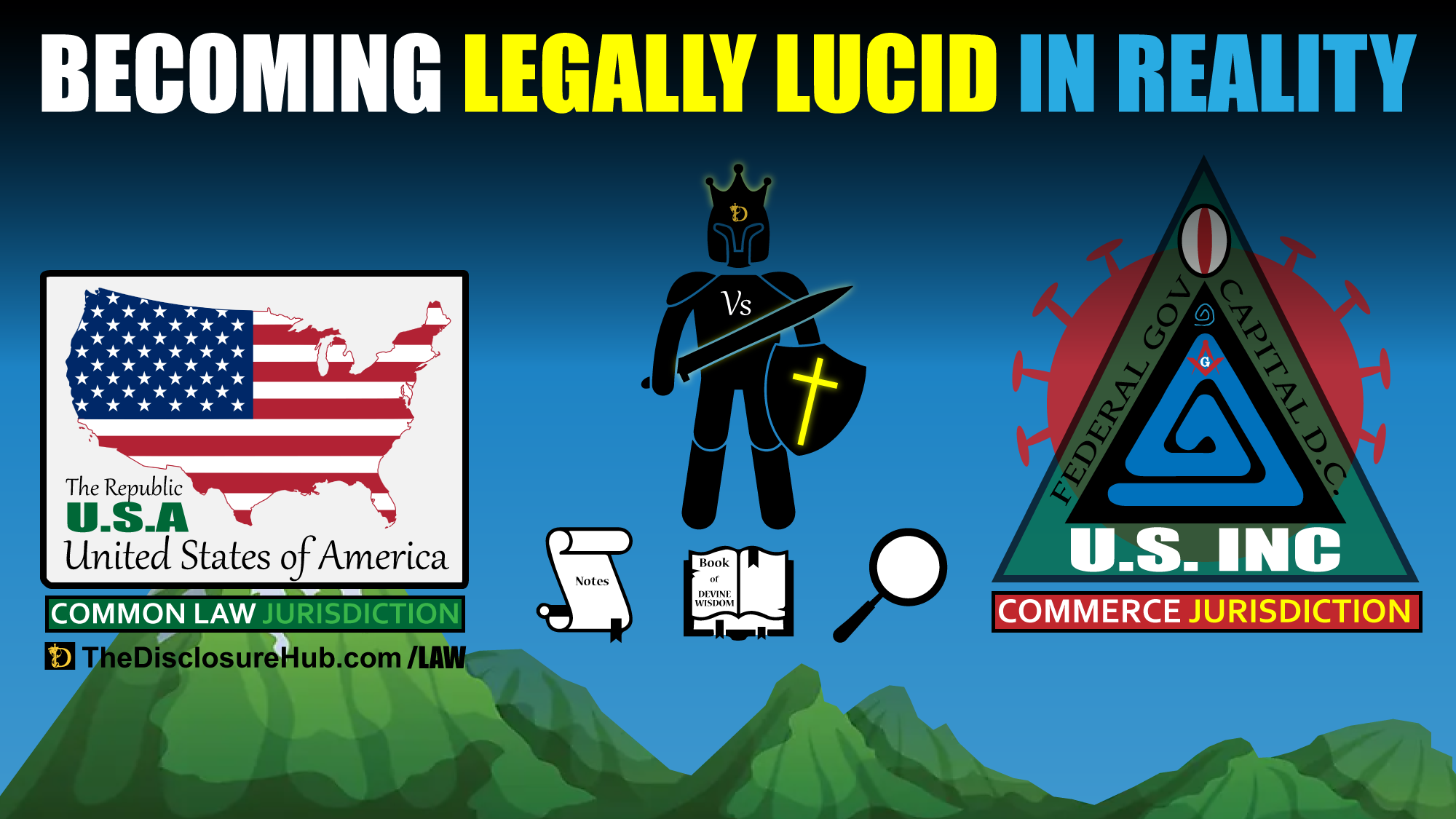Please Be Patient !
The videos and images on this page are HD and take some time to load.
Keep this course free:
The Over-View:
Video Loading..
Secret Civics Course Outline:
Class 1 - Origins of Power
Introduction:
History and origins of power.
Forgetting rights diminishes freedom.
Foundations:
History of lawsuits, tort laws, and contract agreements.
Understanding case law, taxes, and mortgages.
District of Columbia Act of 1871 and its implications.
Key Concept:
Metaphor of the crown – knowing rights and confidently asserting them.
Practical Tips:
Collecting evidence, using certified letters, maintaining records.
Class 2 - Legal Mechanisms and Strategies
Introduction:
Understanding Jurisdiction:
Ignorance leading to corporate jurisdiction.
Importance of asserting rights timely ("latches" concept).
Police and Contracts:
Vocabulary traps in police interactions.
Jurisdiction based on contractual agreements.
Administrative Remedies:
Reserving rights when signing documents.
Use of mail systems for administrative remedies.
Legal Tools:
Understanding UCC and Black's Law Dictionary.
Handling court cases using administrative processes.
Communication:
Vocabulary and definitions impact.
Avoiding Courts:
Using administrative processes and tort law agreements.
Asserting rights and using certified letters.
Class 3 - Jurisdiction and Legal Actions
Complaints and Lawsuits:
Filing complaints in state vs. federal jurisdictions.
State vs. Federal Jurisdiction:
Legal potency comparison between state and federal.
Legal Examples:
Cannabis laws and jurisdiction conflicts.
Choosing Courts:
State vs. federal complaint filing.
Divisive Tactics and Vocabulary:
How societal division impacts legal actions.
How Vocabulary impacts legal actions.
Court System Structure:
Hierarchies and comparison of state and federal courts.
Case Law:
Using Supreme Court cases effectively.
Willful Intent:
Avoiding punishment by asserting rights.
Summary:
Navigating and challenging legal systems wisely.
Class 4 - Leaving the System
Misinformation Risks:
Potential trouble from false confidence.
Independence Steps:
Declaring personal independence.
Importance of public declaration.
Avoiding Terminology Traps:
Correct terminology to prevent incorrect claims.
Practical Steps:
Making declarations public.
Possible Challenges:
Confrontations and societal system avoidance.
Alternative Approaches:
Becoming a state national vs. US corporation citizen.
Personal Choices:
Balance between navigating and challenging the system.
Exercising Rights:
Navigating consequences and legal complaints.
Legal Communication:
Importance of compiling evidence.
Property Taxes Strategy:
Using case law for defense.
Allodial Title:
Absolute property ownership implications.
Income Taxes:
Strategies to challenge income taxes.
Monetary System:
Federal Reserve's role and legal arguments.
Class 5 - Self-Defense Mechanisms
Crown Metaphor:
Asserting rights with confidence.
FOIA:
Freedom of Information Act for incriminating evidence.
FOIA Process:
Detailed request procedures and handling.
Private Property:
Operating under common law jurisdiction.
PMAs:
Private Member Associations for tax benefits and legal defenses.
Power of Press:
Investigating and exposing malpractices.
Militias:
Forming defensive, not offensive, groups.
Practical Tips:
Audits, jurisdiction questions, and continuous learning.
Conclusion:
Applying knowledge for rights and community action.











